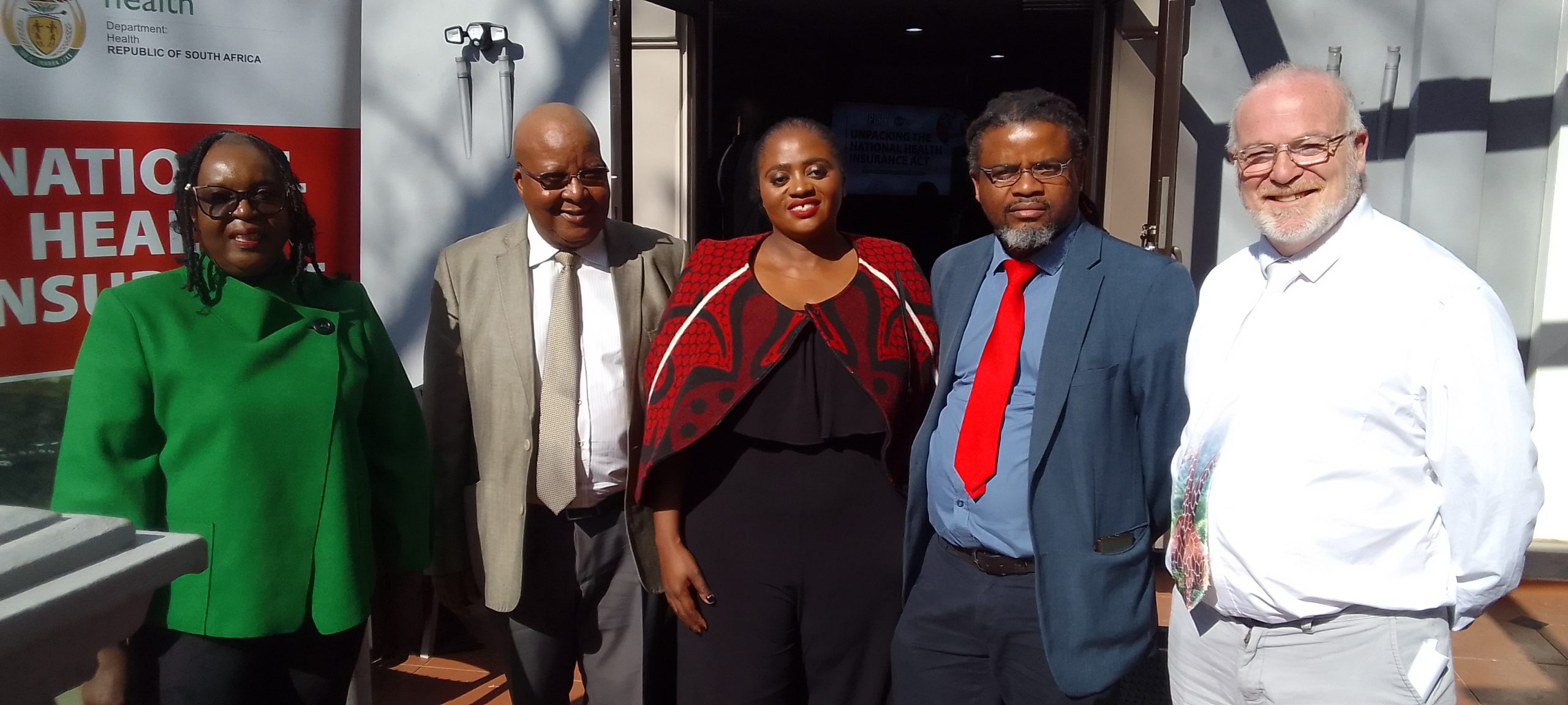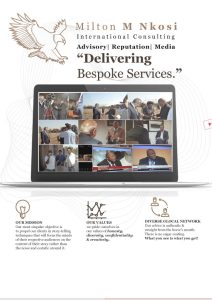Unpacking the National Health Insurance (NHI) Act
Theme: Understanding the NHI & Access to Quality Health
Date: 29th May 2025, Time: 08h30-15h00,
Venue: 50 6th Road Hyde Park: CPD Points to be allocated to the attendees
Panel Discussion with Dr Mathabo Hlahane facilitating:
The NHI Act Key Features – What is to be Resolved and How? (South Africa 2025)
Welcome to our panel discussion on the critical features of the National Health Insurance (NHI) Act and the path forward for its implementation in South Africa by 2025.
We have a distinguished panel of experts with diverse backgrounds and extensive experience in the healthcare sector. They will share their insights on what key aspects of the NHI Act still require resolution and how best to navigate these challenges.
Facilitated by Dr Mathabo Hlahane.

Speaker Introductions and Discussion Questions
1. Dr. Langanani Mbodi
Introduction:
Dr. Langanani Mbodi is a Specialist Obstetrician and Gynaecologist, Gynaecologic Oncologist, and holds key leadership roles, including President of SAMATU (South African Medical Trade Union) and Academic Head of the Wits Gynaecologic Oncology Unit. With extensive experience in public health advocacy and medical training, Dr. Mbodi is a vocal proponent of equitable healthcare access.
Discussion Questions:
- Given your experience at Chris Hani Baragwanath Academic Hospital, what are the most critical gaps in South Africa’s public healthcare system that the NHI Act must address to succeed?
- As SAMATU President, what concerns do healthcare workers have about NHI implementation, and how can these be resolved?
3. Gavin Wright
Introduction:
Gavin Wright is a Safe Patient Handling Consultant with 30+ years of experience in healthcare training and risk management. His expertise spans UK and South African health systems, focusing on patient safety and workforce capacity building.
Discussion Questions:
- How can NHI address systemic challenges in patient safety and healthcare worker training to reduce injuries and improve care quality?
- What low-cost, high-impact strategies from your work could be scaled under NHI to improve rural healthcare infrastructure?
- How should NHI balance standardization with flexibility to accommodate diverse healthcare settings?
4. Dr. Stan Moloabi
Introduction:
Dr. Stan Moloabi is the Principal Officer of GEMS (Government Employees Medical Scheme) and a leader in healthcare financing. His career blends clinical practice, medical scheme management, and health policy advocacy.
Discussion Questions:
- From your GEMS experience, what financing mechanisms could ensure NHI’s sustainability without overburdening taxpayers?
- How can NHI reconcile the tension between universal coverage and the existing private medical scheme ecosystem?
- What governance safeguards are needed to prevent corruption in NHI fund management?
5. Professor Fhumulani Mavis Mulaudzi
Introduction:
Professor Mulaudzi is a renowned nursing scientist and SARChI Chair in the Ubuntu Community Model at the University of Pretoria. Her work integrates indigenous knowledge and ethics into healthcare systems.
Discussion Questions:
- How can the NHI incorporate Ubuntu principles (e.g., community-based care) to address cultural and logistical barriers in rural areas?
- What role should nurses and community health workers play in NHI’s primary healthcare framework?
- How might indigenous knowledge systems inform NHI policies to improve patient trust and outcomes?
General Discussion Themes for the Panel:
- Equity vs. Feasibility: How can NHI balance ambitious equity goals with practical constraints (funding, infrastructure, workforce)?
- Private-Public Collaboration: What safeguards are needed to ensure private sector involvement doesn’t undermine NHI’s equity aims?
- Community Engagement: How can NHI avoid a top-down approach and genuinely incorporate community voices in implementation?







